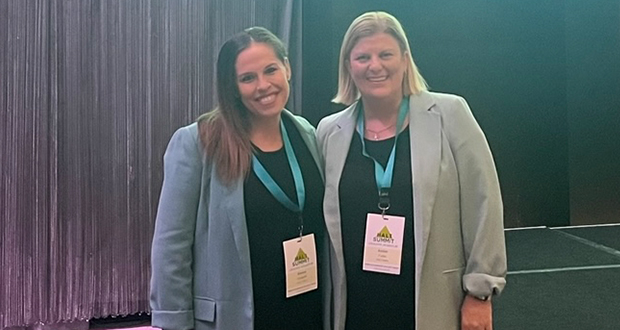Two teachers in Sydney's northern beaches have joined forces to develop a networking program to help educators grow their careers and become highly accredited.
Back in 2020, Avalon Public School deputy principal Bianca Howarth and Manly West Public School deputy principal Amber Fuller decided they needed to do more to support other educators to become highly accredited (HALT) teachers.
The two friends, who had both received their lead teacher and highly accomplished accreditation a couple of years ago, wanted to help broaden the number of HALT teachers in Sydney's northern beaches.
At the time, only four teachers from the Northern Beaches were accredited at higher levels.
"We have all these colleagues that are expert teachers, but they don't have the opportunity to spread their impact beyond the classroom," Ms Amber Fuller told Education Review.
"These are some of the best teachers that you meet, and they often are the most modest - we wanted to give them the opportunity to get their accreditation, get that recognition, that esteem and boost their confidence."
Since the introduction of the highly accomplished teacher accreditation in 2012, about a thousand teachers have completed the process nationwide.
Last year, only 186 teachers became certified.
The accreditation lasts five years before needing to be renewed to keep the HALT title.
By being accredited, HALT teachers can earn up to $120,000 while the median salary for full-time teachers reaches $89,000.
The two deputy principals said while becoming an accredited teacher is difficult and tedious, it is completely "worth it".
"The process helps teachers to identify their strengths and areas of development. It is an incredible professional development tool to reflect on their career and gain confidence," Ms Howarth said.
"It also helps reflects on what you want to do next with your career, which we often don't have time to do in the busyness of school life.
"But, if it was easy, everyone would be doing it. - It is a rigorous and long process, and teachers have to stick with it."
To become highly accomplished, educators must submit evidence of their teaching practice and reflect on their achievements.
After collecting and approving all documents, an external assessor will observe the prospective HALT teacher in their classroom and conduct interviews with their principal and colleagues.
According to Ms Fuller, the most difficult part of being accredited is understanding the process, which can be quite ambiguous and knowing what quality evidence you have to provide in your application.
"If we can get rid of that aspect of it and make it clear on the policy, giving quality feedback, and only letting people ready to apply- that's already half the battle," she said.
"That's also why we started the network; these were big barriers for us when we were doing the accreditation process, and we had no one to turn to when we had questions."
It took two years for both Ms Howarth and Ms Fuller to formally create their support group, which saw six mentees participate in 2022.
The Cross HALT Network has now grown steadily with eight mentors and 15 candidates.
The group get together a couple of times per term, with mentors providing feedback to HALT candidates to help guide them through the process and keep them motivated.
The HALT accreditation process takes on average three years to complete.
Many candidates have to ask for an extension on their application due the difficulties of juggling it with their teaching workloads.
"We're like trying to make little mini goals for them, but everything needs to be flexible because teachers often have personal circumstances, additional school responsibilities or students they have to tend to," Ms Howarth said.
"The integral part is feedback and having that person bumping you along the ride and having that someone that you can just call and say, 'Hey, I've got a question', makes all the difference."
While the two deputy principals recognise becoming a HALT teacher takes time and effort, they urge other educators to take the leap and start their accreditation to better support early career teachers.
In Australia, a 2022 Monash University study showed that 40 per cent of teachers leave the profession within five years.
"To have a highly accomplished mentoring and support beginner or experienced teachers to reflect on their practices and offering new strategies makes a difference in student learning and teachers job appreciation," Ms Fuller said.
While the two deputy principals are dedicated to their support group, they aspire for it to become an independent entity.
"We want HALTs building HALTs, and as our mentees become successful and gain accreditation, we want them to come back and become a mentor and continue the cycle," they told Education Review.
Do you have an idea for a story?Email [email protected]
 Education Review The latest in education news
Education Review The latest in education news


